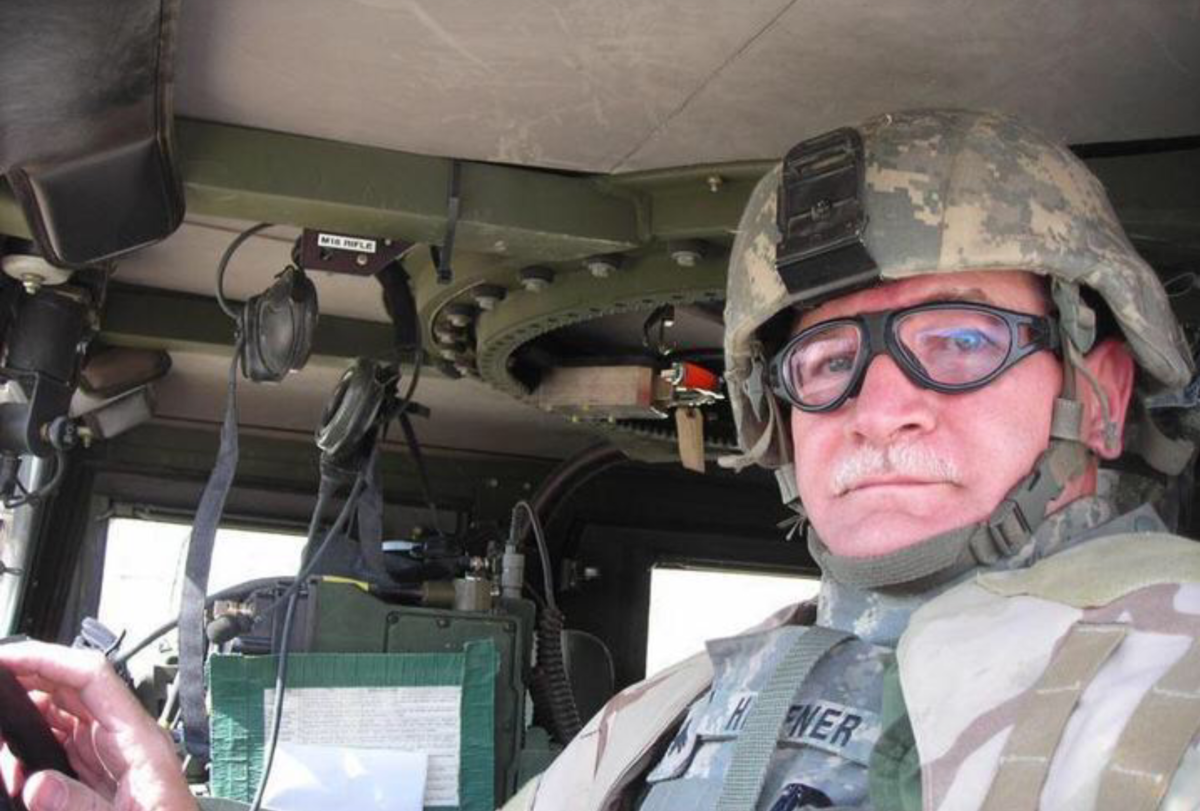Originally published in The Augusta Chronicle, Dec. 18, 2006. Original URL: https://www.augustachronicle.com/stories/2006/12/18/met_109018.shtml.
By Jeremy Craig
It’s a long journey to the deserts of Iraq for a man who got out of the Army after the Vietnam War as a conscientious objector.
Especially for a man in his 50s.
But for Sgt. Gary Heffner, 54, it’s about settling an old debt he said believed he owed the nation.
“It’s good to see that I can keep up with the younger kids here,” the sergeant said in a recent telephone interview from Iraq. “It’s a real positive thing for me.”
He enlisted in the Georgia Army National Guard after the Sept. 11, 2001, terrorist attacks, serving in the 1/214th Field Artillery, Battery B, based in Thomson.
He’s serving in southern Iraq, working with fellow soldiers in base security at Camp Cedar – a refueling and maintenance hub for coalition forces.
The mission has been going well, Sgt. Heffner said, and soldiers have been able to go out to interact with the locals in a part of the country that tends to be a little more friendly to U.S. forces than others.
With eight months in for his tour of duty in Iraq, he’s heading toward the end of a military journey that began in 1971.
Sgt. Heffner originally enlisted in the Army in the early 1970s, “with a promise of Europe” and a three-year tour instead of a near-guaranteed two years in Vietnam.
Sgt. Heffner worked as a mental health specialist, but the Army decided to reclassify him – in field artillery.
Training at Fort Sill, Okla., he was selected to become an instructor.
It was 1976, and he was miserable, spending time trying to figure out how to get out of the Army.
The war – and the draft – were over.
But he filed for conscientious objector status, was approved and got out.
In the 1980s, he realized he made a mistake, and connected with a National Guard unit in his home state, Michigan. He moved to Georgia in 1983, but didn’t join with the Georgia guard.
It wasn’t until after Sept. 11, and the war in Iraq began in March 2003, that he struggled to rejoin the National Guard, all the while focusing on his work with autistic children at East Central Georgia Hospital.
He was finally accepted into the Georgia National Guard, “swearing in” in January 2005 at the age of 52.
For a while, he didn’t mention to his fellow soldiers that he was a conscientious objector in the 1970s and felt ashamed because of it.
But he summoned the guts to write about it for his unit’s newsletter in Iraq – showing it for all of his comrades to read in the middle of a war zone.
“It was something I kept secret up until then,” he said. “It wasn’t anything I was really proud of. But they were very supportive.”
“I think a lot of people have been through a lot of different opinions through the years. Some of us grow up, and that’s what I did.”
